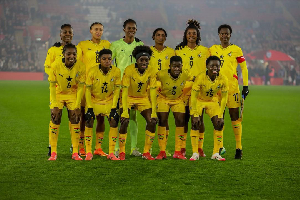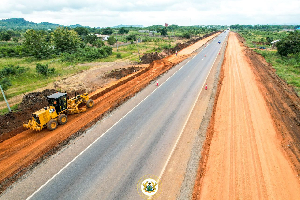Dr. Ishmael Norman, Director of the Center for Disaster Resilience and Leadership Studies of the University for Health and Allied Science (UHAS) has revealed that Ghana spends 70 million dollars annually on disasters alone.
He said the country also spends 4 million dollars monthly on fire disasters, saying, “Every two hours and 15 seconds, catastrophic fire occurs somewhere in Ghana,” and advocated for a serious behavioral change on communities and leadership of the country to deal with the situation.
Dr. Norman was addressing a day’s workshop on disaster resilience studies at the Dungu campus of the University for Development Studies (UDS), which was mainly attended by lecturers of the UDS.
The workshop was aimed at mapping curriculums of the UDS to incorporate disaster resilience studies and eventually develop degrees and post graduate programmes in disaster risk management courses to enable the country to fully deal with perennial disasters.
Disaster Resilience Studies is a new programme being funded by the USAID and spearheaded by the Tulane University in the USA, to systematically strengthen global humanitarian and disaster risk management leaderships in some selected global universities.
Dr. Norman observed that leadership in the country has not taken disaster issues seriously, claiming that, the National Disaster Management Organization (NADMO) lacked the needed capacities to deal with disaster issues in the country, saying, “More than half of the staff of NADMO does not have the expertise.”
He said the Ministry of Finance does not also have available funds or budgetary allocations specifically for disasters in the country and suggested that the government should consider allocating funds for such purposes since many disasters are occurring in the country.
Dr. Norman also suggested to the Government of Ghana to take legal action against the Burkinabe Government for the perennial spillage of the Bagre dam, which causes flood in Ghana and its attended destruction of life and property.
He said the country could win the case and monies accrued from the legal actions could be used to develop affected flood areas and compensate individuals affected by the Bagre dam spillage.
Mr. Dennis Chirawurah, a Lecturer at the UDS School of Medicine and Health Science said the UDS would begin a short course in disaster resilience studies this year and roll out a postgraduate programme in the same field in the 2014/2015 academic year.
He assured the public that the university had the needed human resources to undertake the course, which he indicated, could impact positively in the handling of disaster issues in the country.
Professor Gabriel Ayum Teye, Pro-Vice Chancellor of the UDS observed that the country was experiencing many disasters lately, saying “We cannot prevent disasters, but we can manage them well…why should our leaders wait till disasters occur before trying to find solutions”.
He noted that much of the country’s poverty situation had been aggravated by natural and man-made disasters, saying, “If it is not bush fires then it’s a conflict.”
General News of Tuesday, 21 May 2013
Source: GNA













